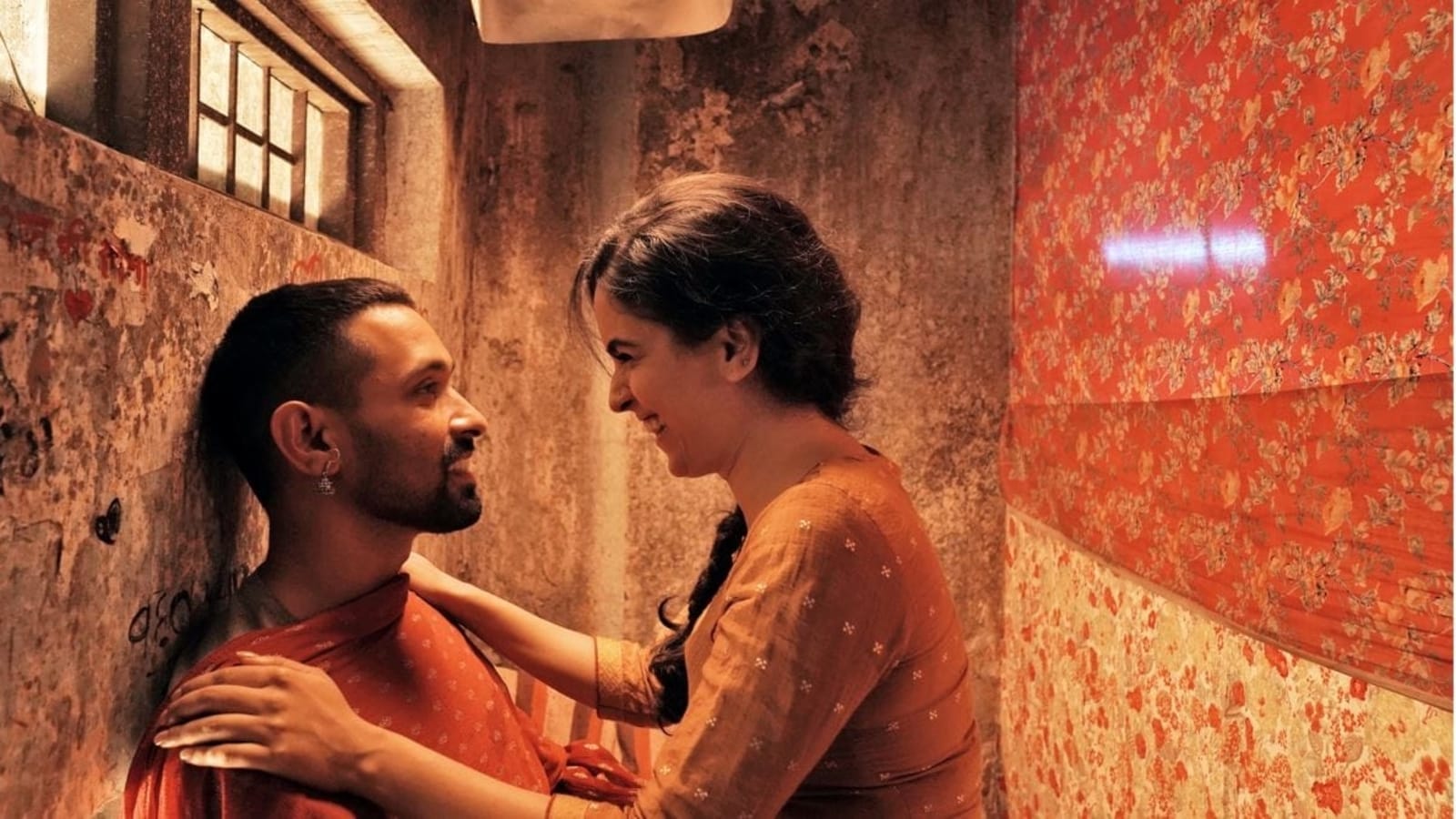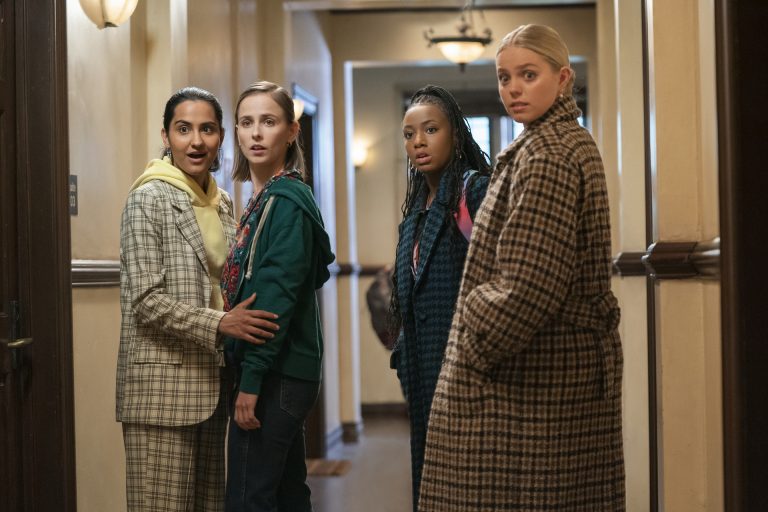Love Hostel (2022) Zee5 Review: The brilliance of Gangs of Wasseypur equipped the small town badland thriller with a sharp edge. It’s one indie sub-genre of Hindi cinema that tends to work with its very familiar beats. It’s primarily because their rusticity makes them all the more grounded. Plus the blood works as a fine wash to the syrupy, rotten feel-good familiarity which is usually served. Shanker Raman, for one, is one of the more distinctive storytellers of this dark, unflinching world. His Fantasia-premiered crime thriller Gurgaon (2017) marked his solid debut. With excellent performances and fairly good writing, he managed to coast through the otherwise bumpy ride that the film was.
His sophomore feature Love Hostel finds him taking a broader scope. Set in Haryana, the film is basically the love story of Jyoti Dilawar and Ashu Shokeen. The fact that they belong to different religions and have eloped to marry is but a lower stake. Ashu is a butcher by profession, a young man who smuggles meat and is trying to free his father from prison, who was incarcerated on false charges of terrorism. Jyoti, on the other hand, is an affluent chartered accountant and the granddaughter of MLA Lalita Dilawar. Her education doesn’t hold a candle to her oppressive family, which is forcefully marrying her. Thus, the star-crossed couple chooses to elope and marry in court.
Jyoti then uploads a video on Facebook, threatening her grandmother that she’ll be responsible if anything bad happens to them. While the video is removed from Facebook due to its ‘objectionable content’, it does finally reach Lalita. She, in turn, hires Dagar, a ruthless honor-killing criminal, to maim the two lovers. The rest of the plot is one long chase between Dagar and the couple.
Related to Love Hostel – Raman Raghav 2.0 [2016]: Man is the cruelest animal!
Stories about star-crossed lovers and honor killings, rightfully, tend to focus on the couple in question. Their romantic moments and their occasional breakdowns are what make them true companions. As such, a happy or tragic ending is but an afterthought. However, Raman’s approach delicately dodges that path. Yes, this is very much the story of Jyoti and Ashu. However, it’s the antagonist here who becomes the ultimate protagonist.
Dagar, a criminal who kills couples belonging to separate religions or castes, is paid a lot of attention to. We’re kept up close towards his ruthless, unsparing, and gritty persona. But the writing never for once denies the fact that he’s in fact a bigot. Dagar claims that he kills to protect the honor of his ‘biradari’. He’d get angry about being called a killer- social worker should be the right word. We’re also introduced to his special modus operandi- taking a smiling picture of each of his victims before butchering them. It’s only later that we see his tender core being revealed, which is still seeped in his problematic outlook. The outright villainy is deliciously played out by veteran Bobby Deol. In what is his definite return to action, the nineties star sheds the skin of a previous beauty to deliver a smart, sly, thrilling act.
But the film doesn’t forget to put its heart on its lovers either. In a clever narrative move, we’re never really shown the roots of Jyoti and Ashu’s affair. They’re inherently the lovers of the moment, and that’s where the audience needs to focus. Sanya Malhotra and Vikrant Massey make for a charming couple. They have real tenderness and warmth together, which isn’t defined by excessive dialogue-baazi. Their pulse is their solid chemistry, and thankfully, we get a brief moment of catharsis between them before the climax. Sanya Malhotra, in particular, is mesmerizing. Her spunky fierceness is at odds with her real emotional core. She is easily one of the best young actresses we have today.
Also, Read – The Wave [2020] Review – A hyper-stylized drug trip about self-realization marred by goofiness
Unfortunately, it’s the writing where the film falters. We’re immediately made aware that Shankar’s approach here is rather feisty and even deliciously campy. It can also get bizarre if it wants to. But while we’re sitting for some genuine invention, the writing has little to invest us. It doesn’t focus on grounding the film well to the rural Haryana milieu. The sense of dread and anxiety we feel through all the bloodshed is unsettling but also immediately forgettable as an experience. The nihilism, sitting at every corner of the film, makes it not exceptionally hard to guess what’s going to happen. There are moments dripping with warmth but still, a distinctive lack of emotional cohesion is felt desperately at times. The acting beyond the performances of the crucial characters is also over-the-top.
The film makes up for some of its flaws with stunning cinematography. There are no immediate details or frames worthy of capture. However, Vivek Shah shows genuine promise because he seems to know the visual language of the film and works just accordingly. It is also one of the better edited Hindi films in recent times. However, none of the technical vibrancy or performative excellence can take one’s attention from fumbling writing.





![Beyond Words [2017]: ‘TIFF’ Review](https://79468c92.delivery.rocketcdn.me/wp-content/uploads/2017/09/beyondwords_09-768x384.jpg)


